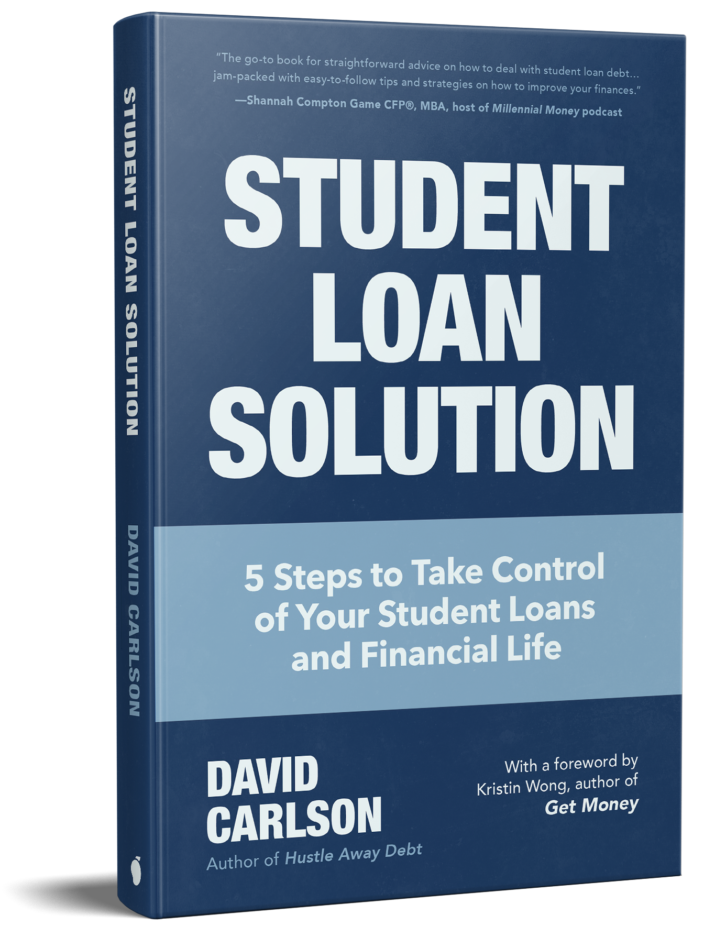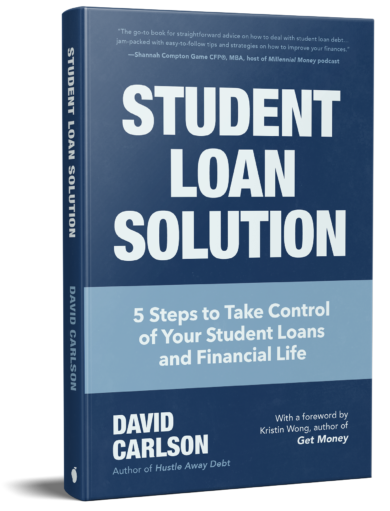 Compound interest is something we’ve all heard about, and understand at some level, but probably don’t put much thought into.
Compound interest is something we’ve all heard about, and understand at some level, but probably don’t put much thought into.
That’s probably because investing sounds like such a boring topic.
But it’s not when it’s framed as turning $5,000 into one million dollars, is it?
It’s a mistake to ignore how powerful compound interest is, and how much it can help us save for retirement.
So if you’ve only ever understood compound interest at the surface level (as in, your money grows over time), then you’re in for a treat.
There’s so much more behind compound interest that you should understand, and these examples will amplify that.
The Numbers Behind Compound Interest
I don’t think it’s enough to simply say that compound interest can multiply your wealth by a lot.
The classic definition is: interest paid both on the original amount of money and on the interest it has already earned.
That really doesn’t do it justice. It’s something that you need to see broken down. So let’s do that.
(If you want to follow along or use your own numbers, just search for a “monthly compound interest calculator”.)
Let’s say you start with $5,000, that your earnings grow at 6%, that you have 40 years until you retire, and that you’re contributing $100 each month.
At the end of those 40 years, you’ll have an ending balance of $254,932.09. You’ll have contributed $53,000 of that – $201,932.09 came from interest.
Those numbers tell a nice story: you don’t have to actually save [insert-intimidating-amount-of-money] that you think you need for retirement. You just need to grow it.
But I Need More Than That to Retire!
Of course, while $250k is nothing to scoff at, it’s not going to be enough to fund your retirement. It makes sense that you’ll be able to contribute more and more as you grow in your job and earn more money.
So let’s change that scenario slightly. You have a $10,000 balance, growing at 6%, with 35 years left, and you’re now contributing $500 every month.
At the end of those 35 years, you’ll have $797,152.44 saved up. $220,000 of that was a direct contribution, while $577,152.44 was due to growth.
That’s almost $800,000, and a $500 monthly contribution isn’t totally out of the question for those in their 30s who are taking steps to manage their money well. That’s also not counting any bonuses or raises you might get.
Getting to a million isn’t that hard if you can afford to save $500 now.
Let’s go back to the beginning balance of $5,000. If you contribute $500 over 40 years with a 6% return, you’ll end up with $1,055,511.36.
The key is, you need to start now.
What Happens When You Start Later
This is the other side of the coin, and it’s just as important to witness if you think you can put off saving for your future.
Let’s say you’re 40, and hoping to retire at 60. You’ve got 20 years to grow your investments, and you’re starting at the same $5,000 balance, contributing the same $500, with a 6% return.
When you’re 60, you’ll have a whopping $248,726.57. Can anyone say ouch?
Your time horizon was cut in half from the previous example – 40 years to 20 years – yet, your balance decreased by $806,784.79.
Even if you increased your monthly contributions to $1,000, you’d still end up with $480,902.12.
The truth hurts! I hope it’s clear now that starting earlier is absolutely way better than starting later.
Why Compound Interest is Important to Take Advantage of
There’s another factor at play that many people aren’t aware of. There’s this nasty thing called inflation that basically erodes purchasing power over time.
You know how your parents love to go on about how gas was so much cheaper back in their day, and how a pack of gum cost a quarter?
That’s inflation at work. The cost of goods and services rises, and consequently, your money is worth less.
$1,000 today will not be worth $1,000 ten years from now. Plain and simple.
You need to plan for that when it comes to retirement and saving in general. That’s why I’ve said throughout many posts here that you can’t just put your money in a savings account and expect it to grow. It’s not an effective strategy.
Taking advantage of compound interest, however, is an effective strategy, as you saw above. Sure, you still need to save for retirement, but compound interest makes that task a lot less daunting.
As long as you stay in it for the long haul and continue to educate yourself, you should be able to earn returns that beat inflation. (Of course, that’s not a guarantee.)
Just keep in mind that inflation directly cuts into your earnings, so if you’re expecting a 6% return and inflation rises at 2%, your actual return will be closer to 4%.
One More Thing…
As if inflation weren’t enough, you also need to contend with fees when saving for retirement.
If you’re taking the simple road and investing in index funds, then you might not have to deal with a damaging fee structure.
However, if you hire a financial advisor to help you, then you should make sure you go with a fee-only advisor. Those who get paid via commission have incentive to sell you whatever will put the most money in their pocket.
That could potentially mean being invested in fee-ridden funds. Your portfolio can easily lose a lot of its value to fees alone, once everything is said and done.
That’s why getting started early pays off. If you think the odds are stacked against you now, imagine having to battle all of these things with a shorter time horizon. You saw what a crazy difference 20 years made. Most people can’t afford to make that mistake when they’re 10-20 years away from retiring.
I’m Convinced – What Should I Do?
Now that you know you should be taking advantage of compound interest (while trying to beat the rate of inflation), what should your next move be?
If you haven’t started saving for retirement yet, then you should definitely get on that! The two best ways to do that for young adults is to take advantage of your 401(k) at work, and if you don’t have access to one, open an IRA.
You can contribute more toward a 401(k), but saving anything will greatly help you at this point. You already saw what waiting can do to your end result, so the important thing is to take action.
You should also educate yourself about the basics of investing. I know it can be scary to start, but lack of knowledge isn’t an excuse. There are so many resources available to you, so start learning step by step.
If the one thing you’re stuck on is paying off debt or investing for retirement, run some numbers. When you have low-interest debt, it can sometimes be more beneficial to invest as you’ll realize a higher return.
____________________
Compound interest is key when saving enough for retirement, but you can only take full advantage of it when you’re younger. Unfortunately, those golden years are barely a blip on any millennial’s radar.
While you might feel like it’s useless to contribute to something you can’t access for another few decades, you’ll be thankful when you’re 50 or 60 and have a comfortable nest egg to retire on!
Were you aware of how powerful compound interest is? Do you think saving earlier is better? How did you get started investing?



Could not agree more Erin. Study after study shows the more & earlier you save the better as it allows for time to do its thing with your money. The thing I’ve tended to see hold people back, including myself, is thinking that just because you have “little” that it won’t make a difference and not start and lose out. Thankfully we’ve been able to do all we can to catch up, but you can’t get that time back.
I agree, John. That’s the most common thought I come across, too. I understand how it feels – I’m not contributing as much as I would like due to my student loans and everything else, but when I realized how important it was to just START, that’s what I did! It’s better than nothing.
Really interesting!!!
Glad you liked it!
In our mid-20s, my husband convinced me we needed to contribute to the company 401k. Even though I understood compound interest, retirement seemed so far away, so it took some convincing for me to agree to lower the paycheck. Fast forward 18 years, and am I ever glad we started that young. For several years, we just invested 6% of the paycheck, but over time, you really start to see the magic of compound interest! We are set to retire early since we started so early.
Ah, thank you so much for leaving this comment, Amanda! I love seeing first-hand advice as it’s really motivating. It’s definitely hard to part with the money at first, especially when there are so many things you could do with it now, but it’s worth it in the end.
Love posts like this. Compound interest seems like slow going the first few years, but once it gets going, it’s just like the snowball rolling down the hill that keeps getting bigger and bigger!
And you’re absolutely right about inflation. People severely underestimate how much more living will cost 30 years from now. Investing your money aggressively and not moving investments too much will help fight that inflation beast.
Exactly, Syed! The more you invest early, the more momentum you gain down the road. It’s just tough when you can’t see the effects right away.
Inflation is probably the thing that scares me the most. It has the ability to just wipe out all your hard work. It’s definitely important to stay ahead!
Compound interest is so powerful. If only more people realized that even small amounts of money can add up to a lot over time.
I hope they do! It’s a nice way to reframe retirement into something a bit more exciting. =)
Thanks for breaking this down–it is so important to start early and consistently make contributions. What do you recommend for those in debt? We always made sure to get the full employer match, and invested 15% of our income until we paid off our student loans, then increased the amount. Do you have any advice?
Various, unavoidable life expenses have definitely set back our retirement savings. We’re going to do our best to compensate (inasmuch as that’s possible) starting next year by throwing a bunch into a SEP IRA. But in the end I’m also accepting the fact that I may just only ever be able to go down to part-time work. That said, I’ll also be working to save for a rental property, which could help supplement our retirement income.
Hey Erin, thanks for the reminder of how powerful compounding is! I think a powerful thing about compounding is when it’s working against you (like a loan) – you have to pay so much more for stuff, which sucks!
Tristan
Good job on breaking it down. Really makes the thought of compound interest all the more real. As with many things, it’s important to just start, even if a small amount.
If you don’t have a lot of money to start investing, look into robo-advisors like Betterment, which has no account minimum or Wealthfront, which only requires $500 (a lot better than Vanguard & Fidelity’s $2,500-3,000 minimums!). Just be in the know about what fees you’re being charged on the investments!
Erin,
This is another awesome post.
I sure wish I’d known at your age what you know. I’d be way ahead financially.
Thanks for sharing more great stuff!
All the best! Shin
Thanks Shin! At least it’s never too late to start, and catching up can be done when you’re diligent about it.